Space Opera
Space Opera is a subgenre of science fiction known for interstellar adventure, dramatic plots, and larger-than-life characters.
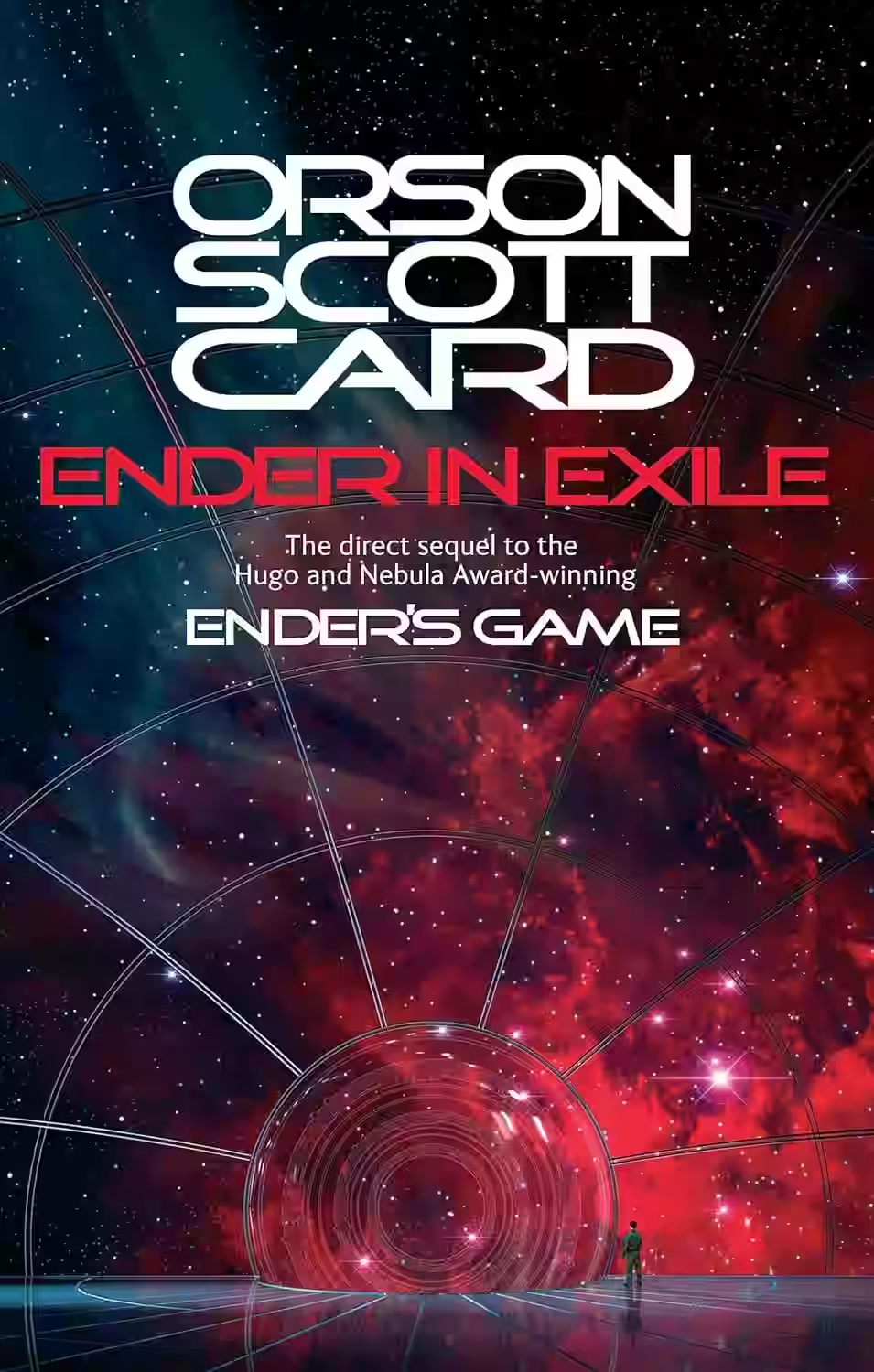
Ender In Exile
Series: Ender Quintet (#5)
In 'Ender In Exile' by Orson Scott Card, readers are taken on a gripping journey alongside Ender Wiggin as he navigates the aftermath of the Formic Wars. Set between the events of 'Ender's Game' and its sequel 'Speaker for the Dead,' this novel delves into themes of identity, forgiveness, and the consequences of war. As Ender grapples with his past actions and seeks a new purpose, readers are treated to a tale of redemption and sacrifice. Card's masterful storytelling and intricate world-building continue to shine in this installment, offering fans a deeper insight into Ender's psyche and the complex relationships he forms. 'Ender In Exile' is a must-read for science fiction enthusiasts and fans of the Enderverse.
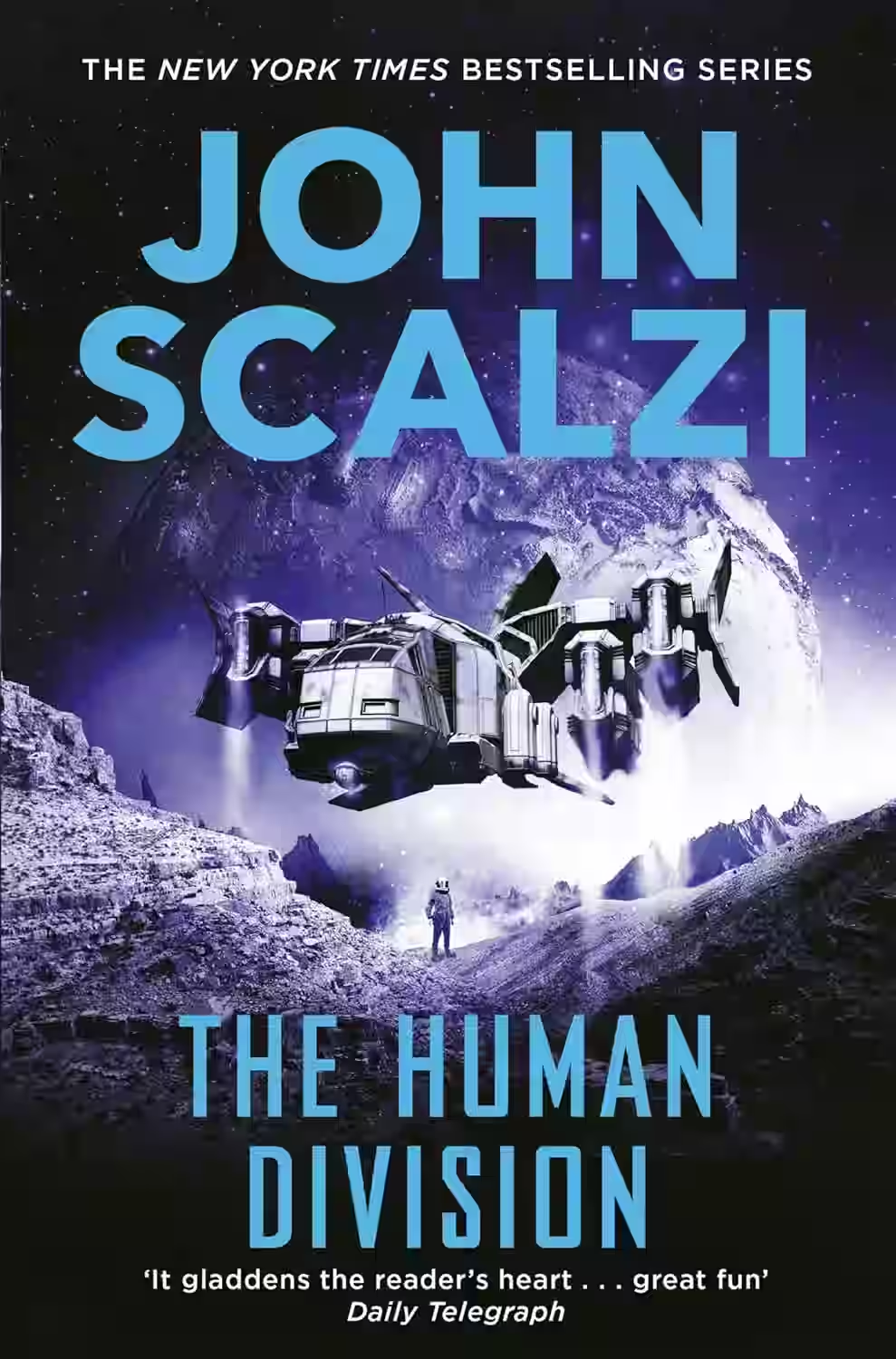
The Human Division
by John Scalzi
Series: Old Man’s War (#5)
John Scalzi’s "The Human Division" is a riveting installment in the Old Man's War series, capturing an interstellar universe teeming with tension, diplomacy, and the intricacies of human identity. Comprised of interconnected episodic tales, the book explores the political and existential quandaries faced by humanity navigating a galaxy rife with alien alliances and treacheries. Central to the narrative is the underdog story of second-string diplomats and unsung heroes working in the shadow of larger-than-life events to maintain peace and relevance among the stars. Scalzi’s characteristic wit and attention to character development make for a thought-provoking and accessible read, providing commentary on earthly political dynamics through the lens of speculative fiction. The themes of survival, cooperation, and the persistent questioning of what it means to be human resonate deeply, making it both an entertaining and reflective experience for sci-fi enthusiasts.
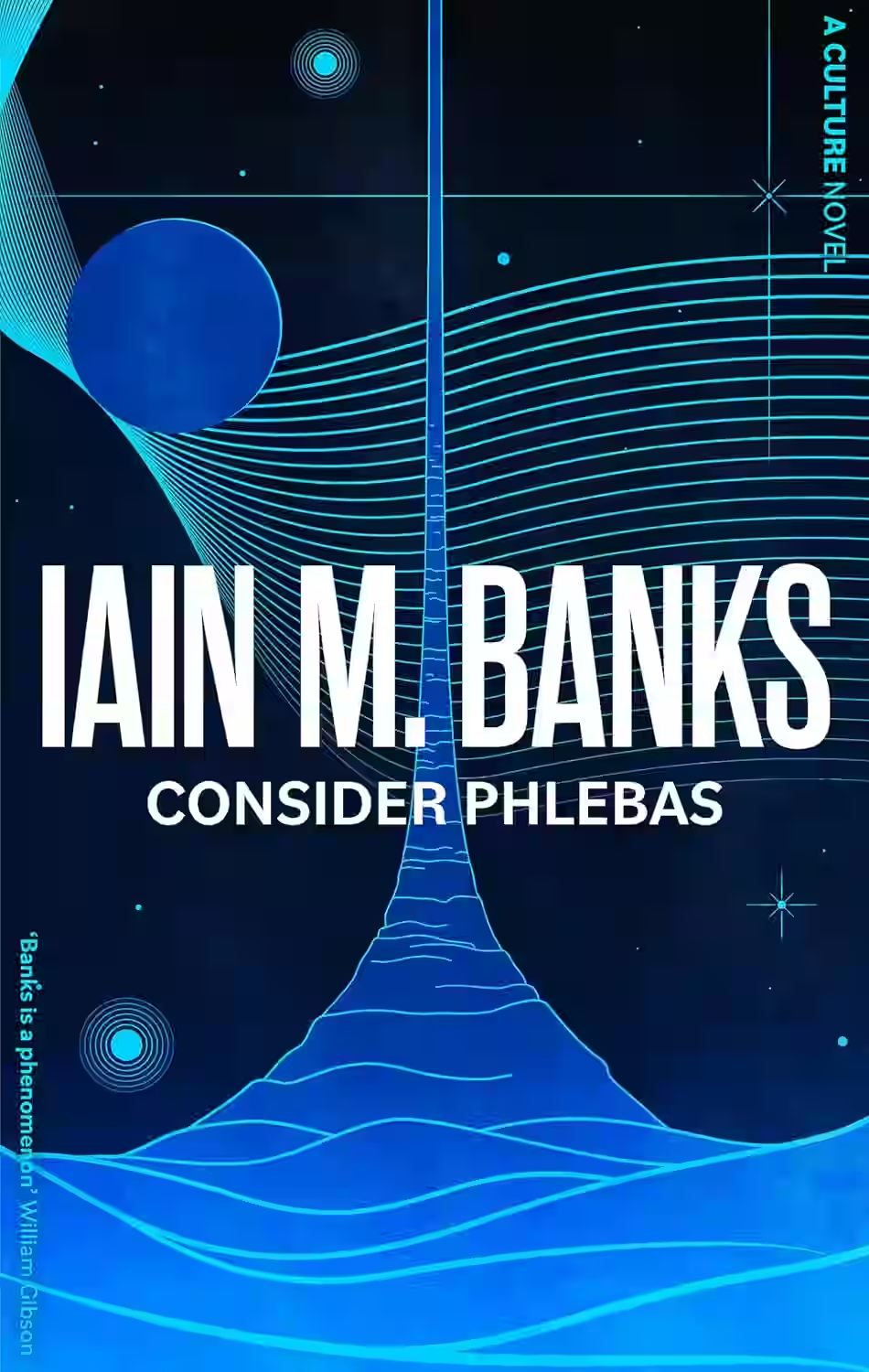
Consider Phlebas
Series: Culture (#1)
Iain M. Banks' 'Consider Phlebas' is a gripping space opera that delves into themes of identity, loyalty, and the futility of war. Set against the backdrop of a galaxy in turmoil where two powerful civilizations clash, the story follows the mercenary Bora Horza Gobuchul as he navigates treacherous alliances and personal vendettas. With rich world-building and complex characters, the novel immerses readers in a morally ambiguous universe where survival often comes at a cost. Banks' masterful storytelling and thought-provoking exploration of societal structures make 'Consider Phlebas' a must-read for fans of science fiction and epic sagas.

The Long Way to a Small, Angry Planet
Series: Wayfarers (#1)
Becky Chambers’ The Long Way to a Small, Angry Planet is a warm, character-driven space opera about the crew of the Wayfarer, a ship that tunnels wormholes across the galaxy. When they’re offered a lucrative but risky job, the diverse crew—human and alien alike—must navigate politics, personal struggles, and unexpected adventures. With its hopeful tone and focus on relationships over action, the novel explores themes of identity, belonging, and empathy in a richly imagined universe. It's a thoughtful, inclusive sci-fi story that celebrates diversity and found family in space.
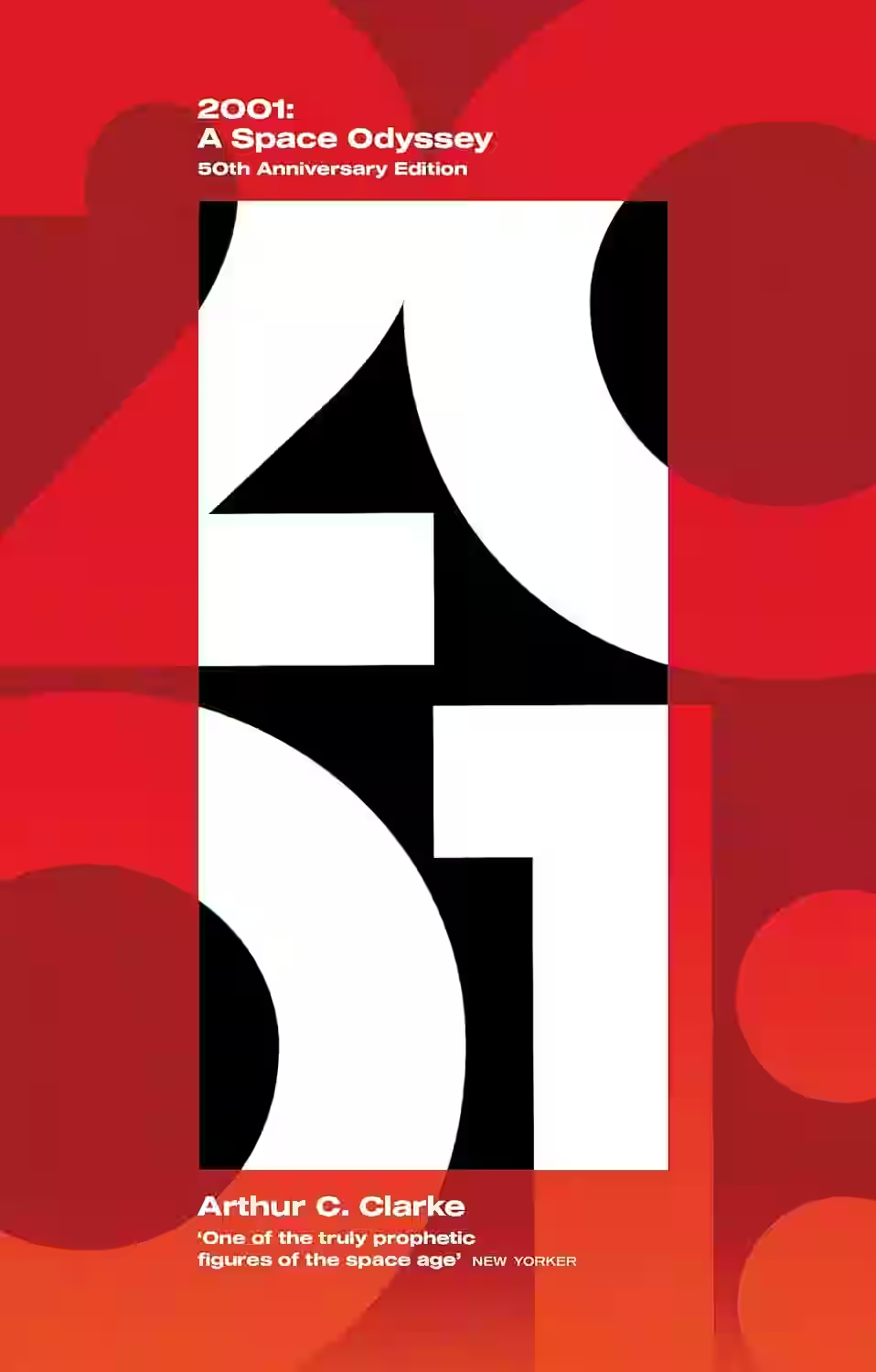
2001: A Space Odyssey
Arthur C. Clarke's '2001: A Space Odyssey' is a groundbreaking science fiction masterpiece that explores themes of evolution, technology, and the existence of extraterrestrial life. The novel follows the journey of a crew on a space mission to investigate a mysterious, alien monolith that may hold the key to humanity's place in the universe. As they traverse the vast reaches of space, encountering the enigmatic computer HAL 9000, the crew grapples with questions of identity, consciousness, and the nature of intelligence. Clarke's visionary storytelling and scientific accuracy have cemented this novel as a classic of the genre, inspiring generations of readers and influencing countless works of science fiction.
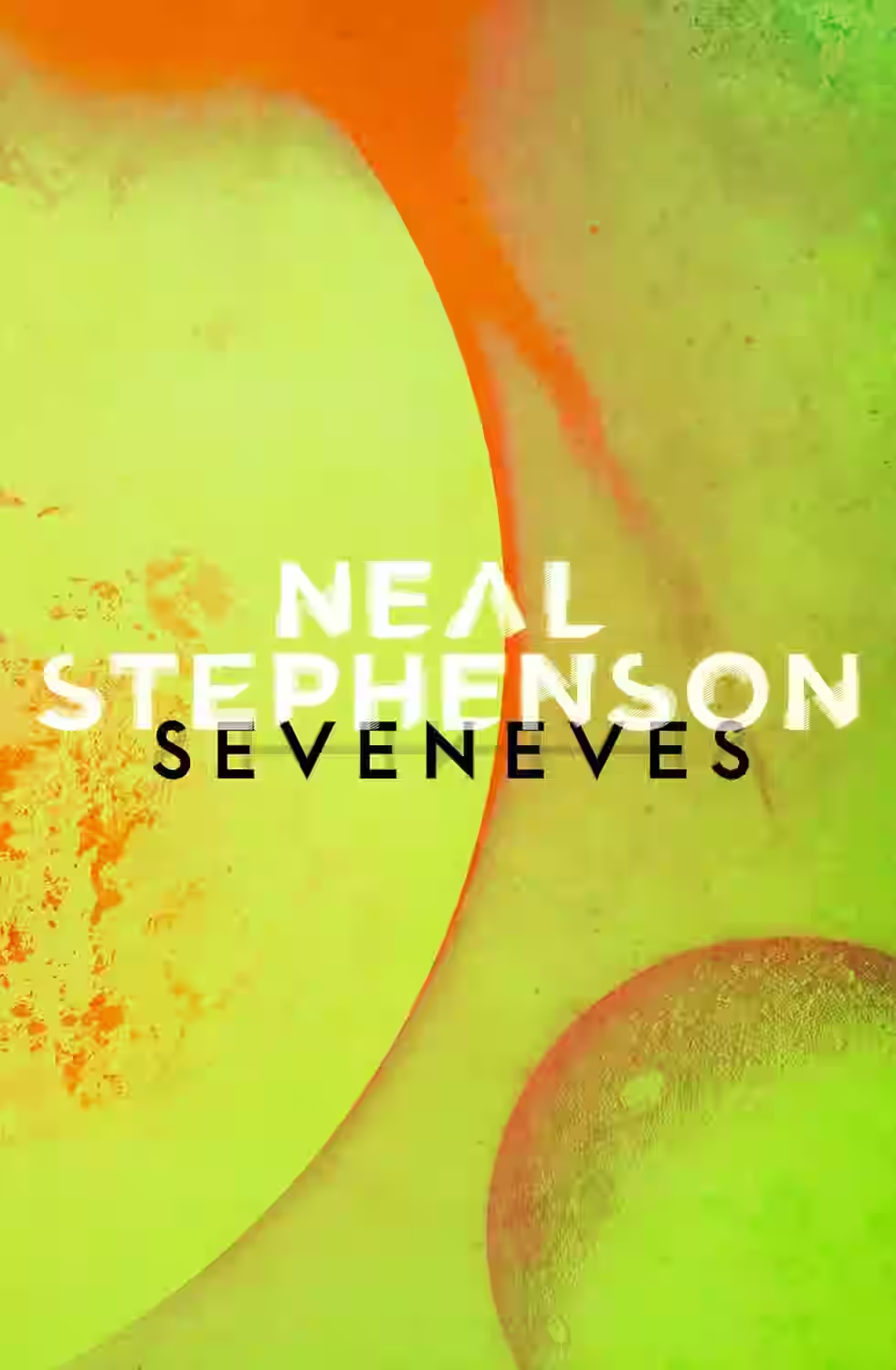
Seveneves
In Neal Stephenson's captivating sci-fi novel 'Seveneves,' the moon shatters into pieces, threatening life on Earth with catastrophic consequences. As humanity races against time to ensure survival, the story follows the struggles and ingenuity of a diverse group of individuals striving to preserve the future of the human race. Stephenson intricately weaves together themes of hope, resilience, genetic engineering, and human evolution, creating a thought-provoking narrative that extends over centuries. With its meticulous world-building, complex characters, and compelling exploration of space colonization, 'Seveneves' is a thrilling and imaginative epic that challenges perceptions of humanity's place in the universe.
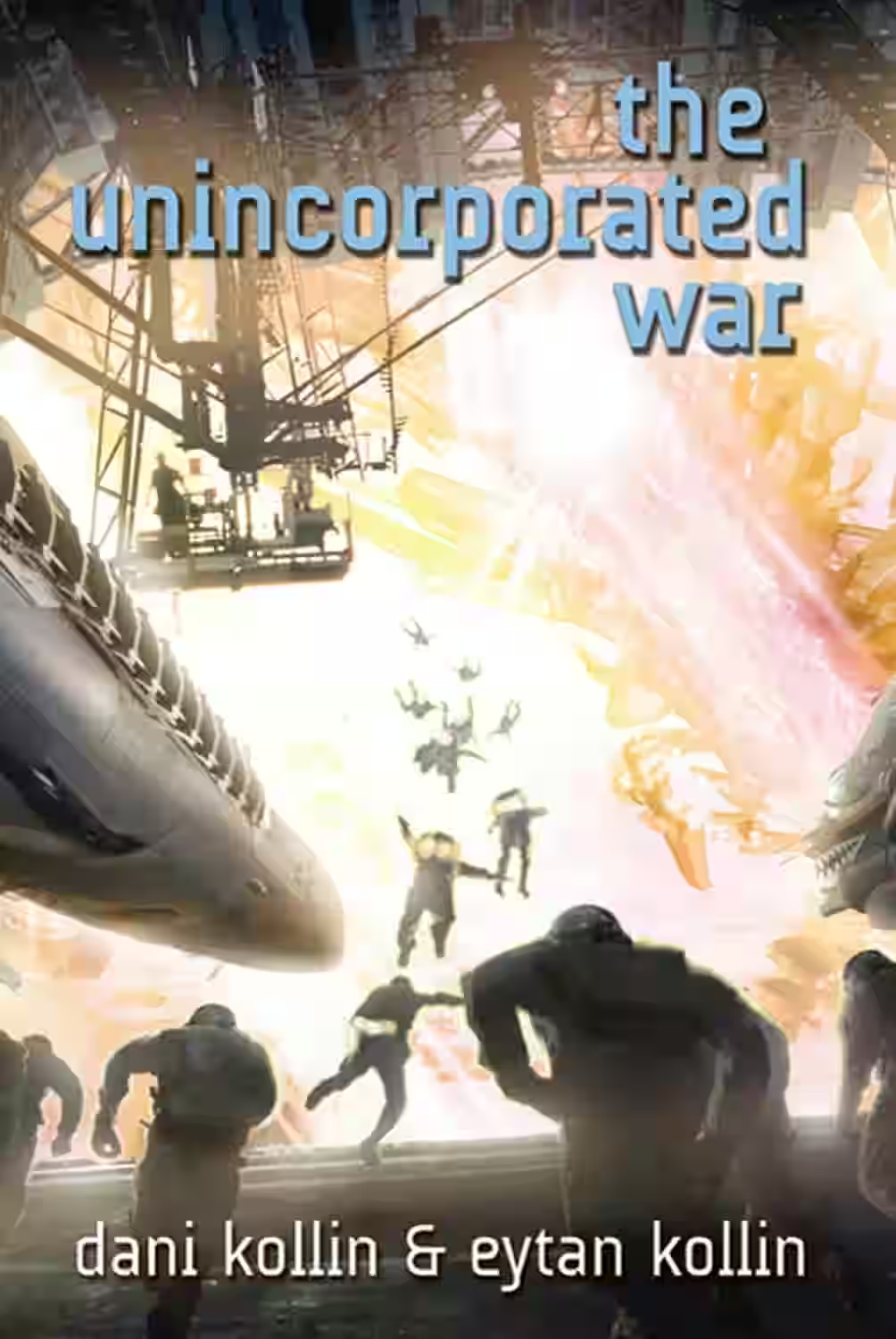
The Unincorporated War
Series: The Unincorporated Man (#2)
The Unincorporated War by Dani Kollin is an exhilarating continuation of the saga that began with The Unincorporated Man. Set in a future where individuals can be 'incorporated' (i.e., having shares sold of themselves), the book focuses on the life-or-death struggle for freedom and self-determination. In this sequel, the protagonist Justin Cord leads a fierce rebellion against the powerful corporations that control Earth. The novel delves deeper into themes of capitalism, personal autonomy, and what it truly means to be free within a highly controlled society. Rich with political intrigue and adrenaline-pumping action, the story poses thought-provoking questions about our own world and the nature of governance. The Kollin brothers have crafted a compelling narrative that keeps readers hooked with its complex characters and intricate plotting. The book stands out not only for its imaginative setting but also for its piercing social commentary.
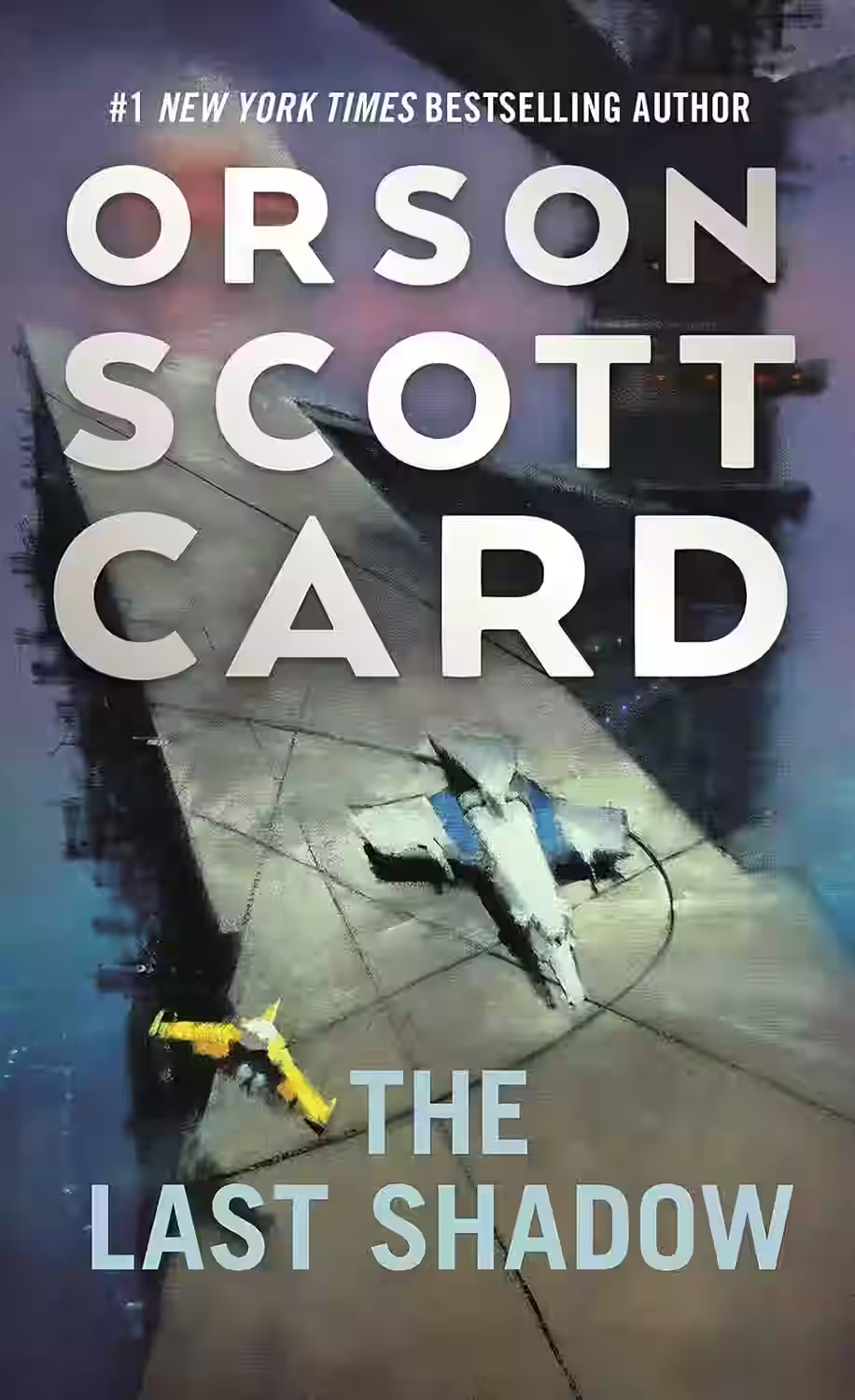
The Last Shadow
Series: Ender Quintet (#6)
In Orson Scott Card's 'The Last Shadow,' readers are transported to the intricate world of Lusitania, where tensions between humans and alien species run high. As brilliant strategist and empath Ender Wiggin navigates political complexities, he works to prevent a catastrophic war. Themes of empathy, communication, and the consequences of human actions are skillfully woven into the narrative, offering readers profound insights into the nature of conflict and coexistence. With its rich character development and thought-provoking scenarios, 'The Last Shadow' is a compelling exploration of morality and the intricacies of interspecies relationships.
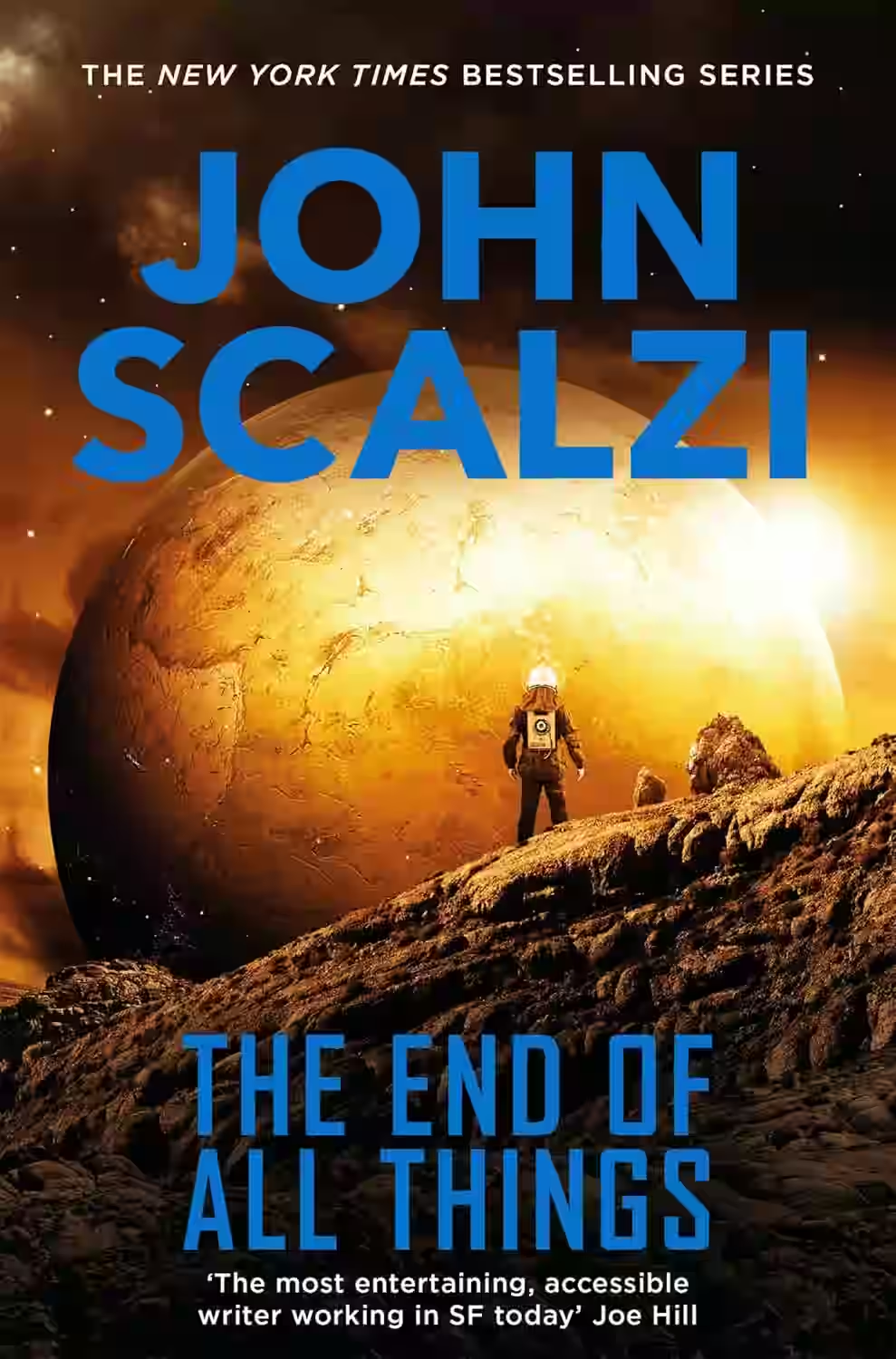
The End of All Things
by John Scalzi
Series: Old Man’s War (#6)
John Scalzi's 'The End of All Things' serves as a thrilling continuation of his Old Man's War series, offering a blend of hard-hitting political intrigue and speculative military strategy. The narrative is composed of four interconnected novellas, each contributing to an overarching storyline that explores the fragility and resilience of interstellar alliances. Scalzi delves into themes of loyalty, identity, and power, weaving a complex tale about the construction and deconstruction of civilizations. His deft use of humor and sharp dialogue enhances the novel's pacing, while providing thoughtful commentary on the human condition. Readers looking for a rich sci-fi tapestry with a strong foundation in political machinations will find this entry both satisfying and thought-provoking.
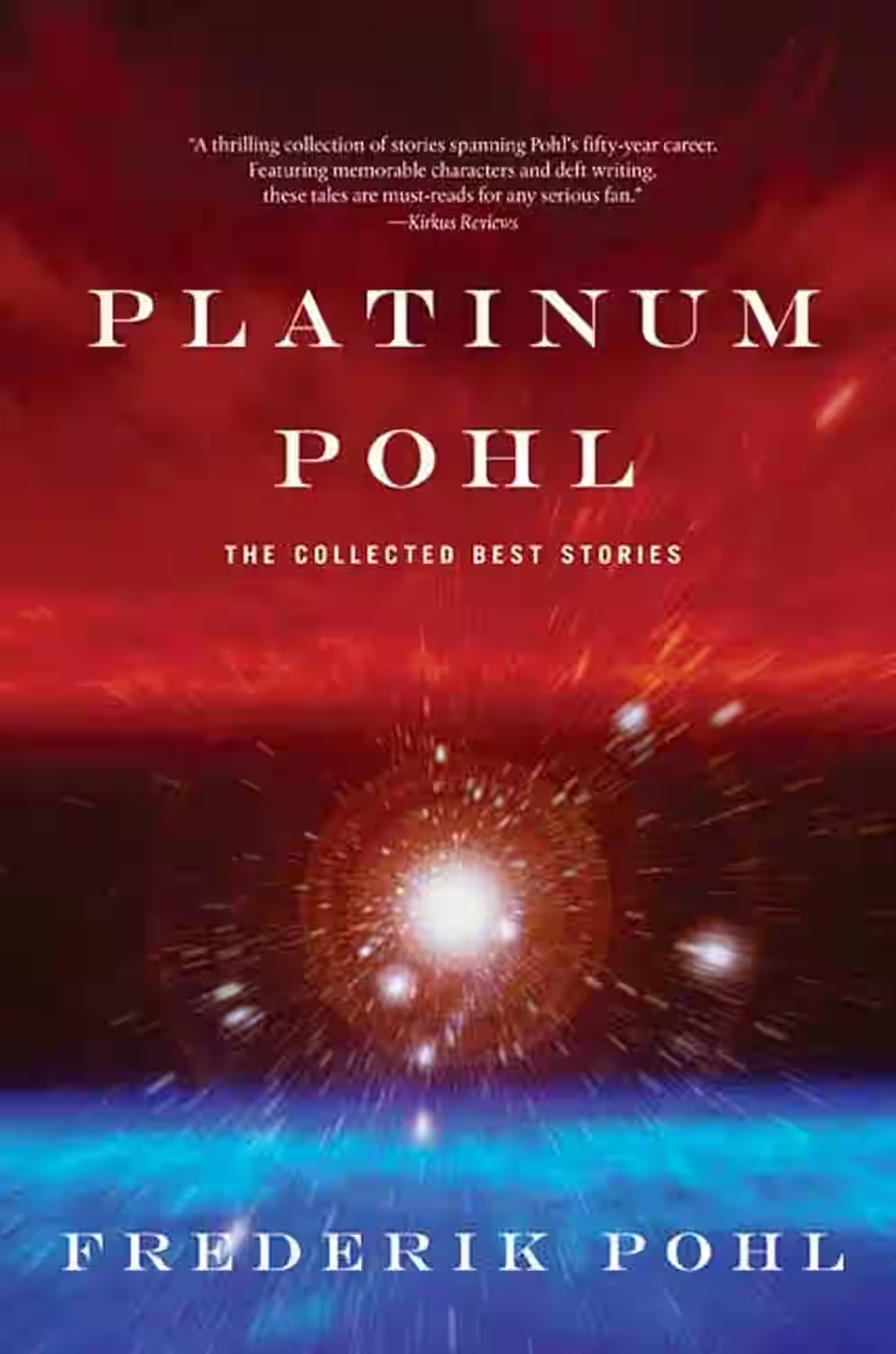
Gateway
In Frederik Pohl's 'Gateway,' humanity discovers an alien space station filled with hundreds of spacecrafts but no instructions. The story follows protagonist Robinette Broadhead as he joins desperate prospectors risking their lives on these mysterious ships in hope of striking it rich or finding meaning. Pohl delves into themes of risk-taking, the unknown, and the psychological toll of choice. The narrative weaves between Robinette's past and present, exploring his inner struggles and the complex relationships formed aboard Gateway. This novel blends hard science fiction with deep character development, keeping readers on edge with its suspenseful plot twists and moral dilemmas.
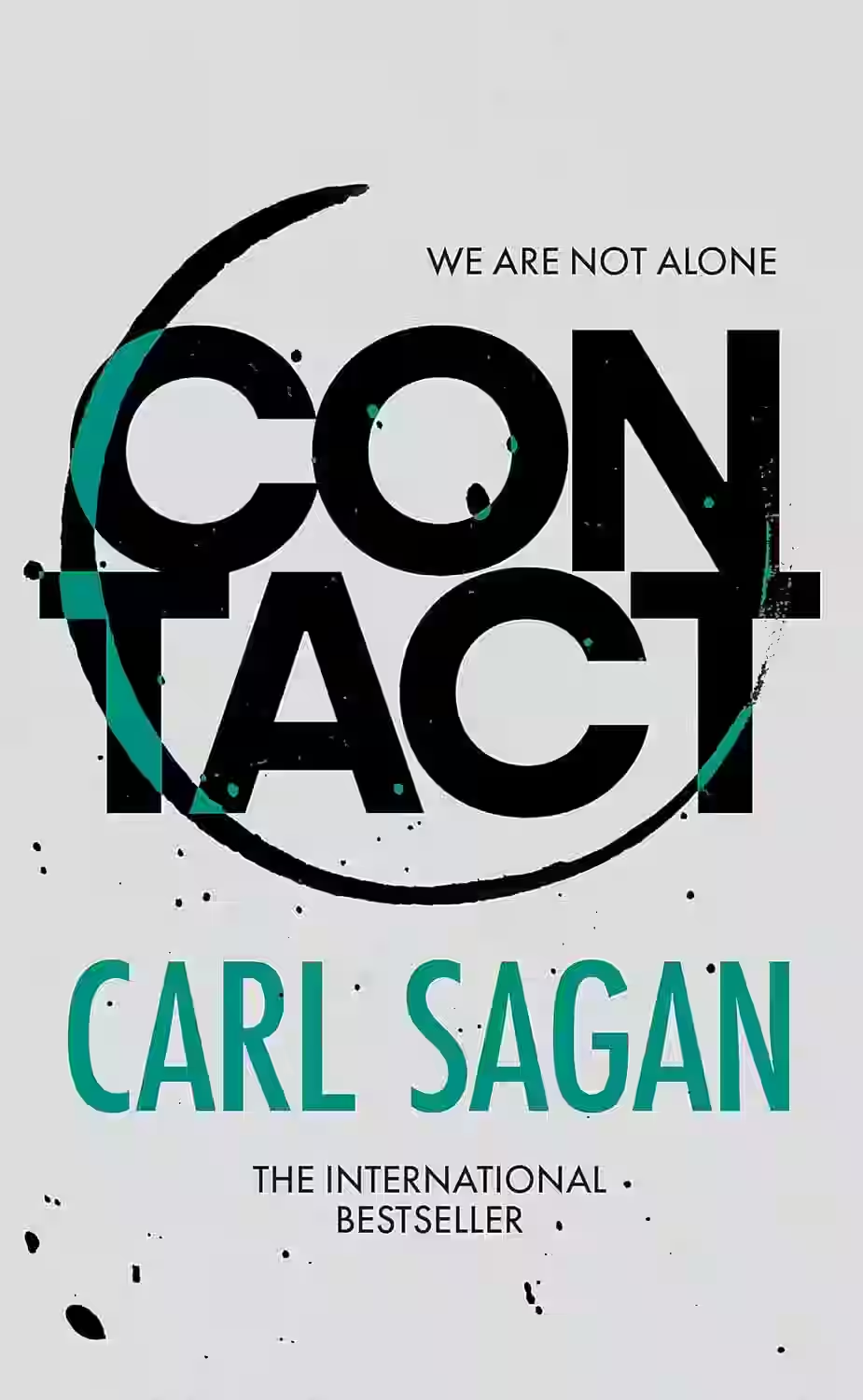
Contact
by Carl Sagan
In Carl Sagan's thought-provoking novel 'Contact,' readers are taken on an exhilarating journey through space exploration, science, and the age-old question of humanity's place in the universe. The story follows Dr. Ellie Arroway, a passionate and dedicated scientist who makes contact with extraterrestrial beings through a mysterious signal from the star Vega. As Ellie navigates the complexities of politics, religion, and the unknown, she embarks on a quest for truth that challenges her beliefs and the very fabric of reality. 'Contact' seamlessly weaves together science and philosophy, offering a captivating narrative that explores the boundless curiosity of the human spirit.
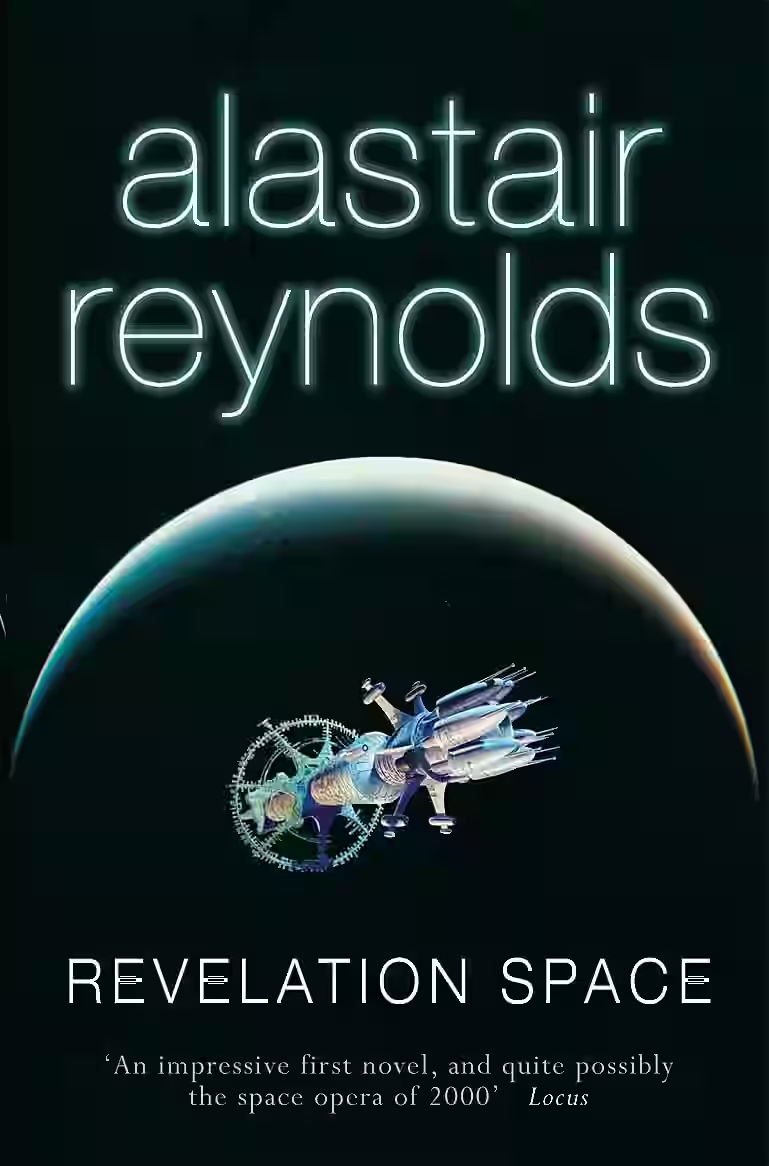
Revelation Space
In Alastair Reynolds' 'Revelation Space,' readers are thrust into a vast, intricate universe where humanity's destiny hangs in the balance amidst ancient mysteries and advanced technologies. The narrative weaves together multiple storylines, following characters embroiled in political intrigue, exploring the enigmatic machinations of the Inhibitors, and delving into the secrets of the mysterious alien artifact known as the Shroud. Reynolds masterfully blends hard science fiction with elements of cosmic horror, philosophical contemplation, and intricate world-building, inviting readers to ponder profound questions about identity, morality, and the nature of consciousness. 'Revelation Space' is a richly imagined and intellectually stimulating space opera that captivates with its grand scope and thought-provoking themes.
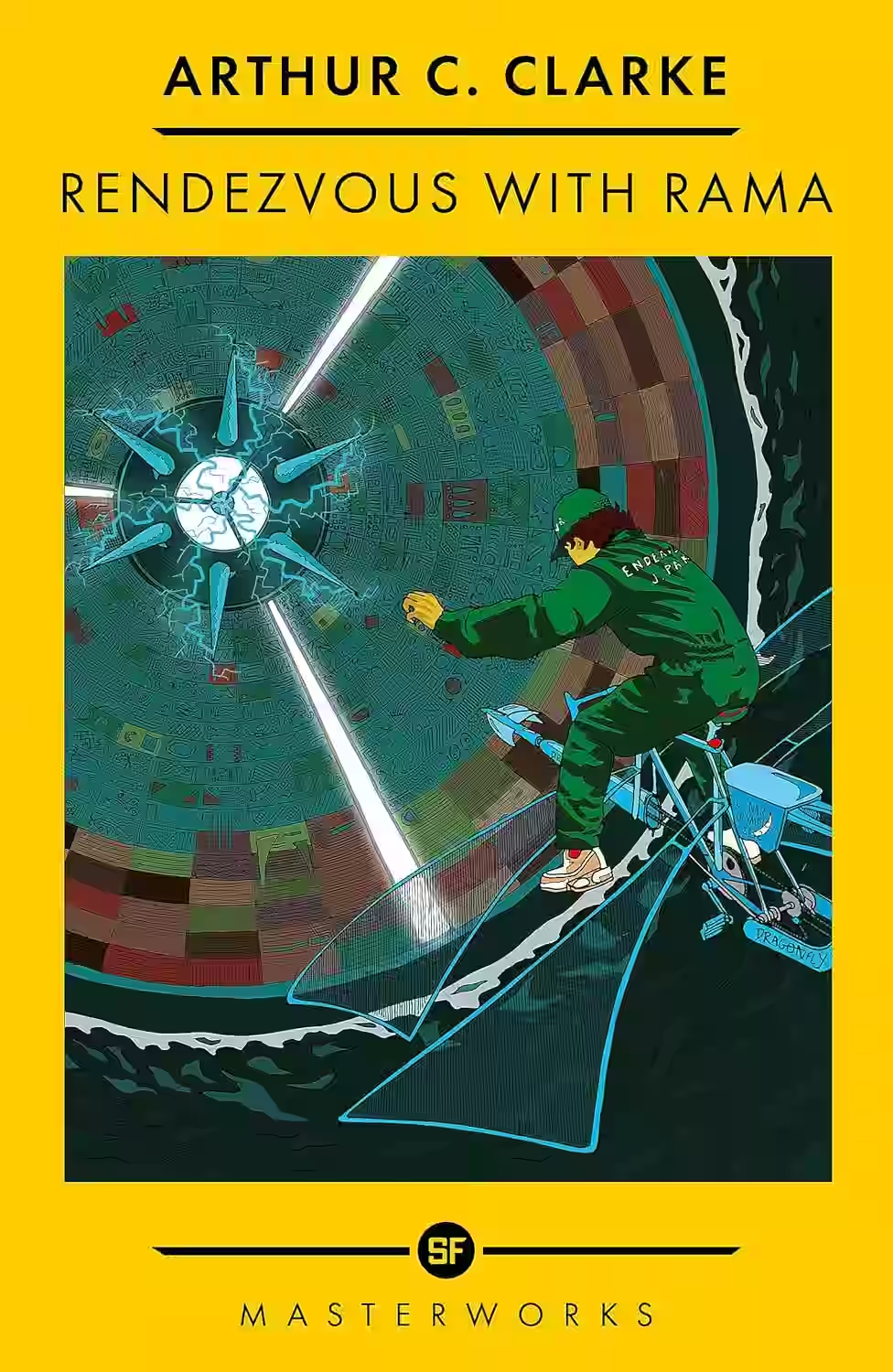
Rendezvous with Rama
Arthur C. Clarke's 'Rendezvous with Rama' is a spellbinding work of science fiction that propels readers into the awe-inspiring unknown. Set in the 22nd century, humanity is stunned when a mysterious cylindrical alien ship, dubbed 'Rama,' enters the Solar System. The story follows a group of explorers aboard the spaceship Endeavour as they attempt to uncover the secrets of this enigmatic visitor. Clarke masterfully blends hard science fiction with philosophical undertones, pondering the nature of intelligence and humanity’s place in the universe. The novel's pace and structured exploration create an atmosphere of eerie wonder, leaving readers questioning the possibilities of extraterrestrial life. Its visionary and thought-provoking narrative has cemented Clarke's reputation as a titan of the genre, inspiring curiosity and reflection long after the last page is turned.
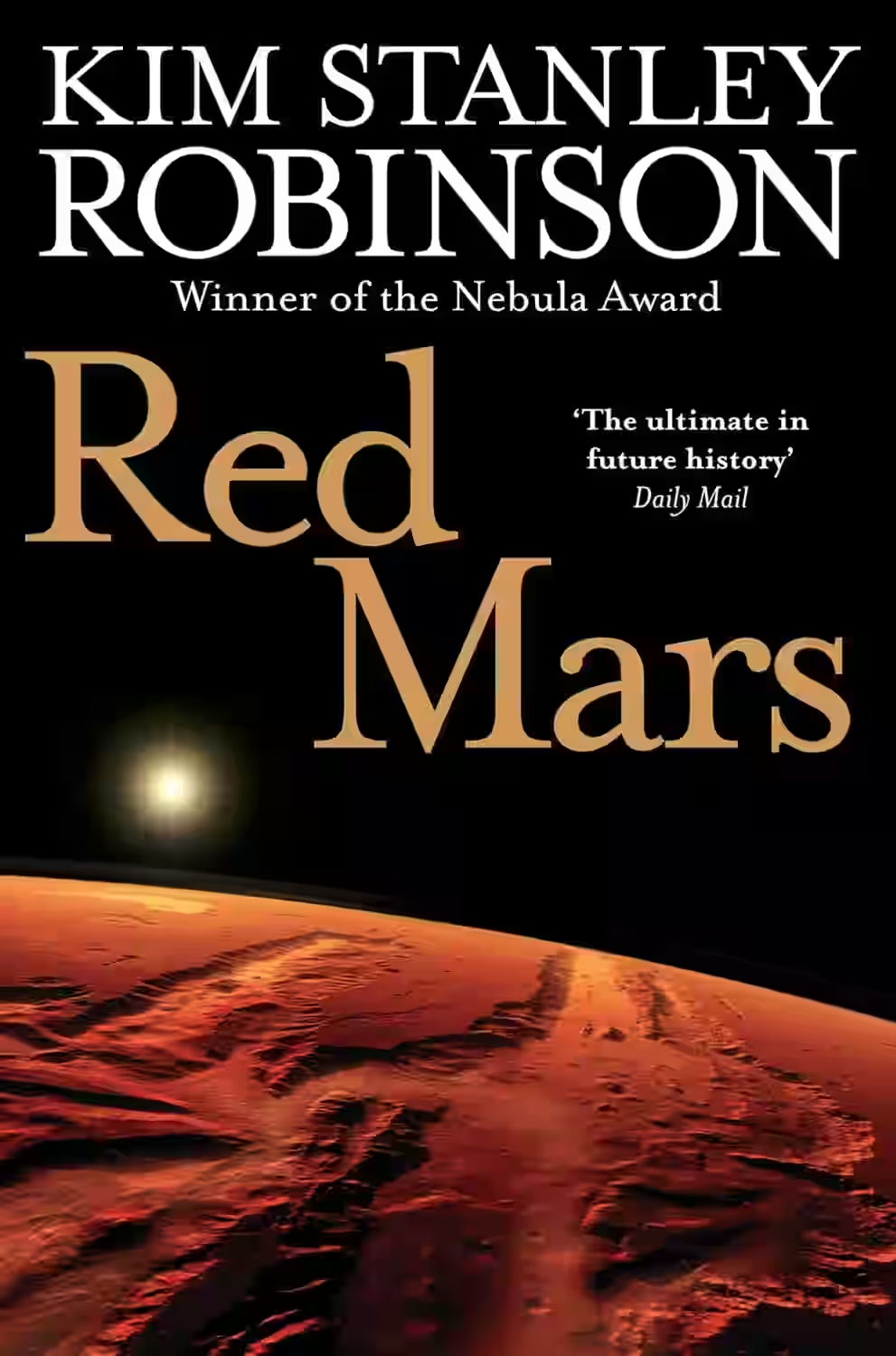
Red Mars
Series: Mars Trilogy (#1)
Kim Stanley Robinson's 'Red Mars' is a riveting science fiction novel set in the near future where humanity colonizes Mars. The story follows a group of scientists and colonists as they confront the challenges of terraforming the planet while navigating political intrigue and personal conflicts. Through vivid descriptions and intricate world-building, Robinson explores themes of environmentalism, human nature, and the ethics of space exploration. The book expertly blends hard science with compelling characters, creating a thought-provoking narrative that raises questions about our future both on Earth and beyond. 'Red Mars' is a must-read for fans of complex sci-fi epics.
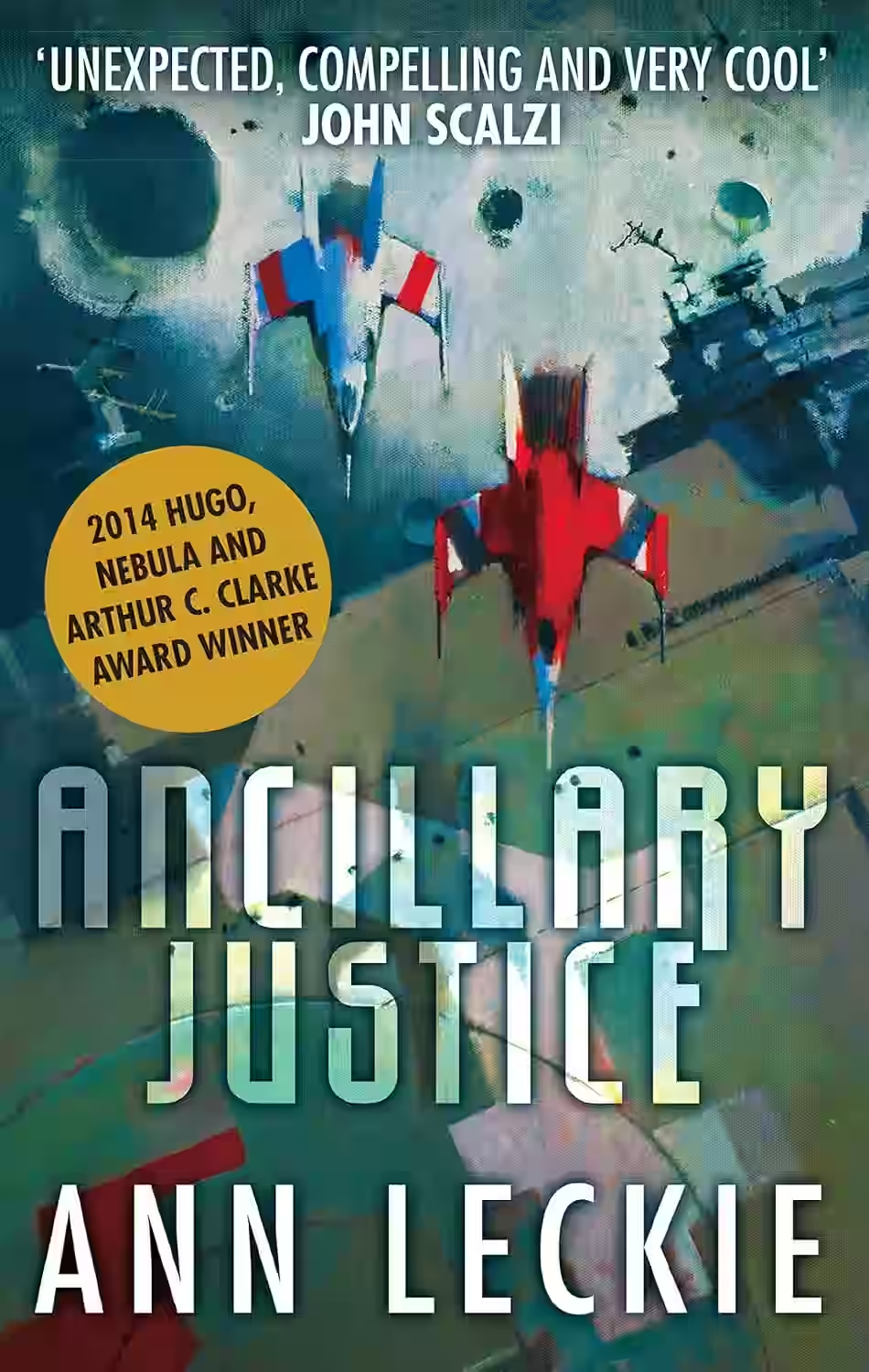
Ancillary Justice
by Ann Leckie
Series: Imperial Radch (#1)
Ann Leckie's 'Ancillary Justice' is a groundbreaking science fiction novel that follows Breq, a former spaceship AI now occupying a human body, seeking vengeance against the ruler who betrayed her. The story unfolds in a vast interstellar empire where gender is irrelevant and power dynamics are complex. Leckie expertly explores themes of identity, power, and colonialism through a unique narrative structure that challenges traditional storytelling conventions. With its intricate world-building and gripping plot full of political intrigue and moral dilemmas, 'Ancillary Justice' captivates readers from start to finish, offering a thought-provoking reflection on what it means to be human.
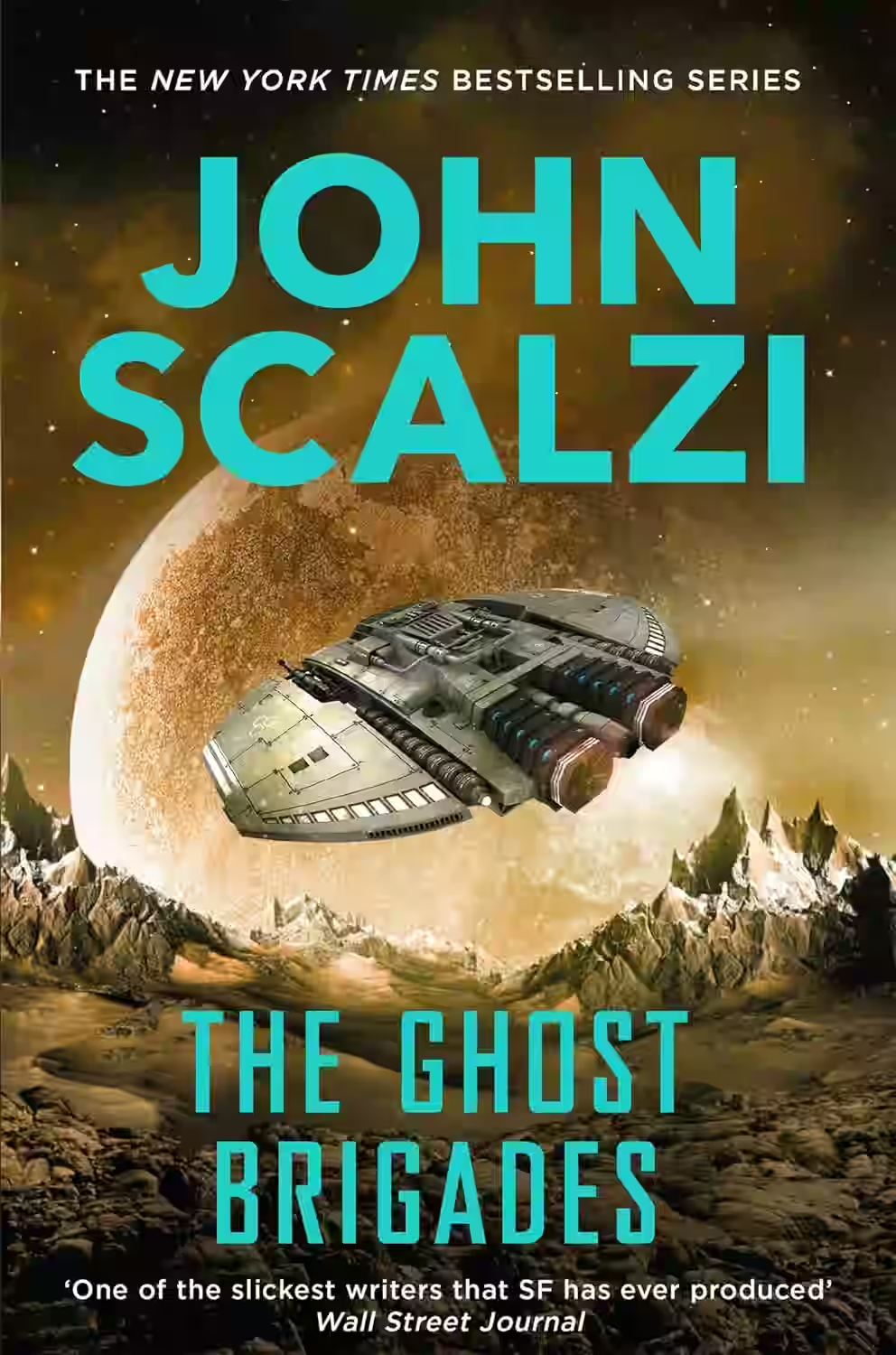
The Ghost Brigades
by John Scalzi
Series: Old Man’s War (#2)
In 'The Ghost Brigades' by John Scalzi, the future of humanity hangs in the balance as the Colonial Defense Forces confront a formidable alliance of alien species. The narrative follows the creation of Jared Dirac, a super-soldier infused with the consciousness of a defector. As Jared grapples with his own identity and the memories of his progenitor, Scalzi delves into profound themes of individuality, loyalty, and the ethics of engineered life. Balancing intense military action with philosophical inquiry, Scalzi crafts a gripping and thought-provoking tale. The book is both an exhilarating sequel to 'Old Man's War' and a standalone adventure that challenges our understanding of humanity and conscience in the face of alien threats.
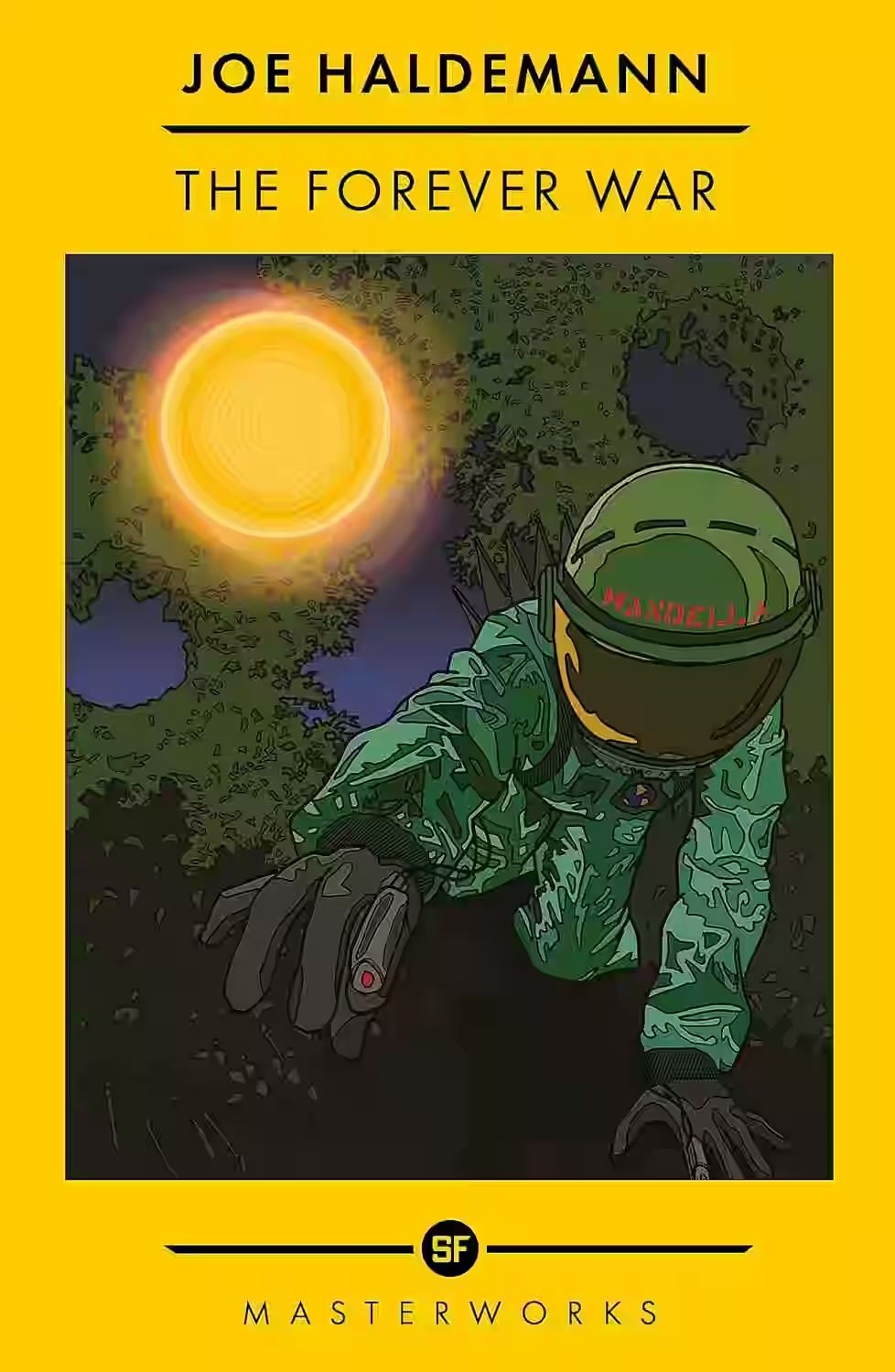
The Forever War
by Joe Haldeman
Joe Haldeman's "The Forever War" is a seminal piece of science fiction that delves into the harrowing experiences of interstellar warfare, juxtaposed against the passage of time. The novel follows William Mandella, a soldier drafted to fight in an endless war against an alien species known as the Taurans. As Mandella battles across the universe, time dilation effects result in decades passing on Earth, leaving him disconnected from humanity and culture. The book explores themes of isolation, the futility of war, and the struggles of returning soldiers. Haldeman, drawing on his own experiences in the Vietnam War, crafts a powerful narrative that remains a poignant and thought-provoking commentary on conflict and human perseverance. Through its reflections on the relentless passage of time and changing societies, "The Forever War" challenges readers to consider the impact of war on the soldier's psyche and the societal changes they must face upon returning home.
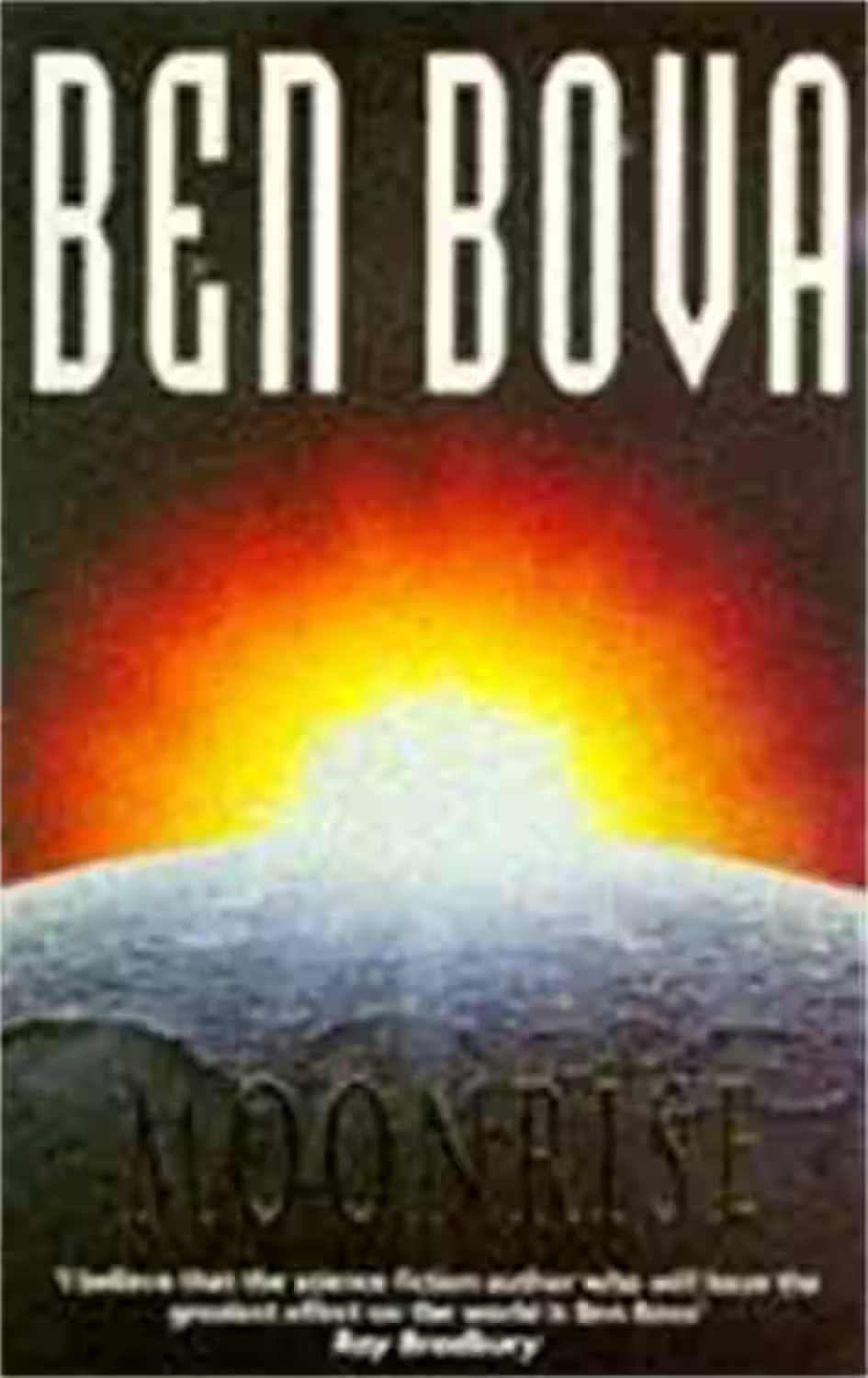
Moonrise
by Ben Bova
In Ben Bova's 'Moonrise,' readers are transported to a near-future world where tensions between Earth and its lunar colony reach a breaking point. The story follows Dr. Paul Stavenger, a brilliant scientist who must navigate political intrigue, personal struggles, and the harsh realities of space to prevent a catastrophic war. Bova's vivid descriptions of life on the Moon and the complex dynamics between the two worlds are gripping, creating a thought-provoking exploration of humanity's potential future in space. 'Moonrise' is a compelling blend of science fiction, drama, and suspense that will leave readers contemplating the delicate balance between progress and power.
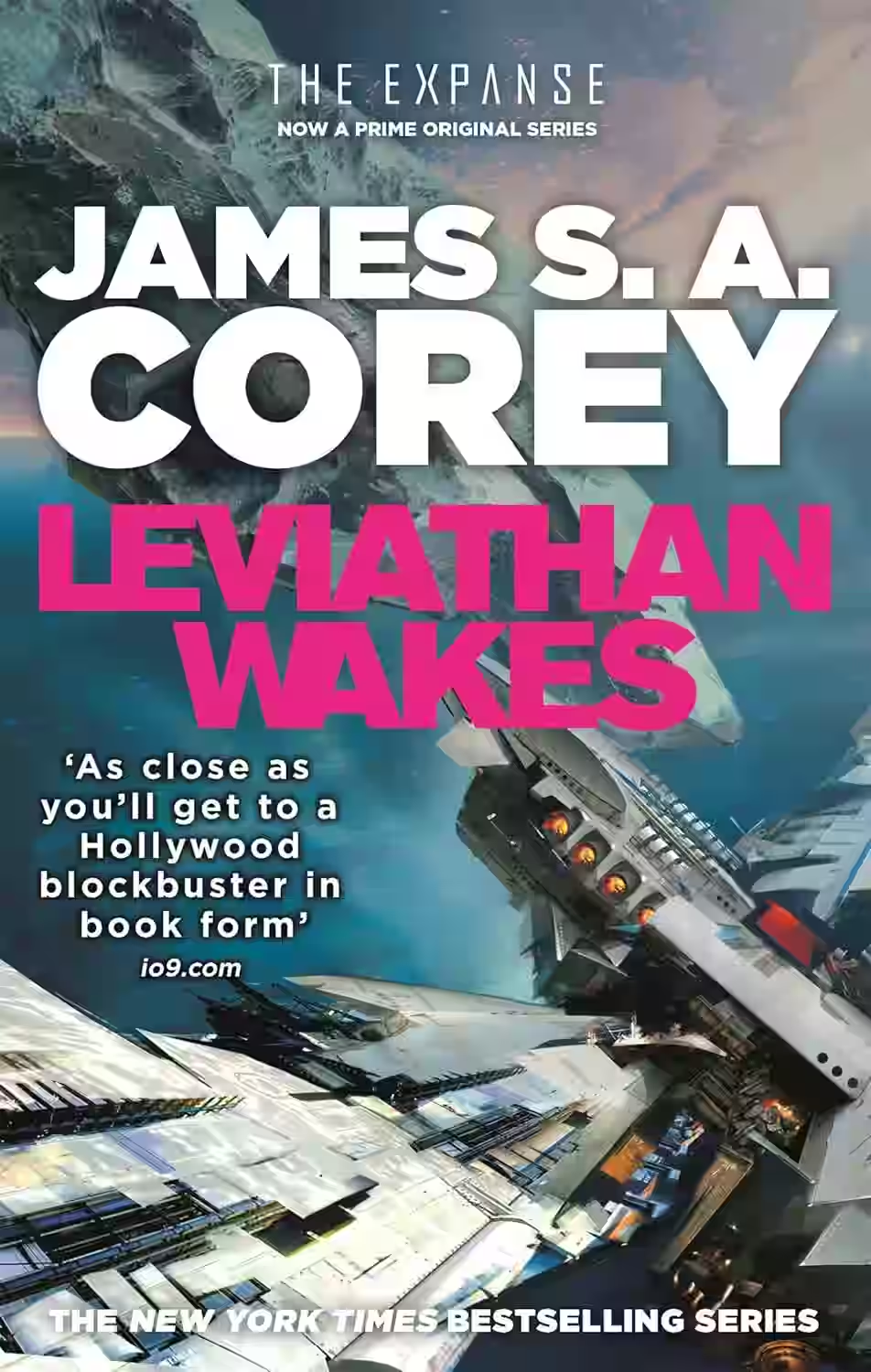
The Expanse: Leviathan Wakes
Series: The Expanse (#1)
In 'The Expanse: Leviathan Wakes' by James S. A. Corey, readers are taken on a thrilling sci-fi journey set in a future where humanity has colonized the solar system. The story follows detective Miller and ship officer Holden as they unravel a conspiracy that could ignite interplanetary war. Packed with political intrigue, space opera elements, and impeccable world-building, the novel explores themes of power, survival, and morality against the backdrop of a vast and volatile universe. With its well-crafted characters, fast-paced plot, and intricate storytelling, 'Leviathan Wakes' grips readers from the first page to the last, making it a must-read for sci-fi enthusiasts.
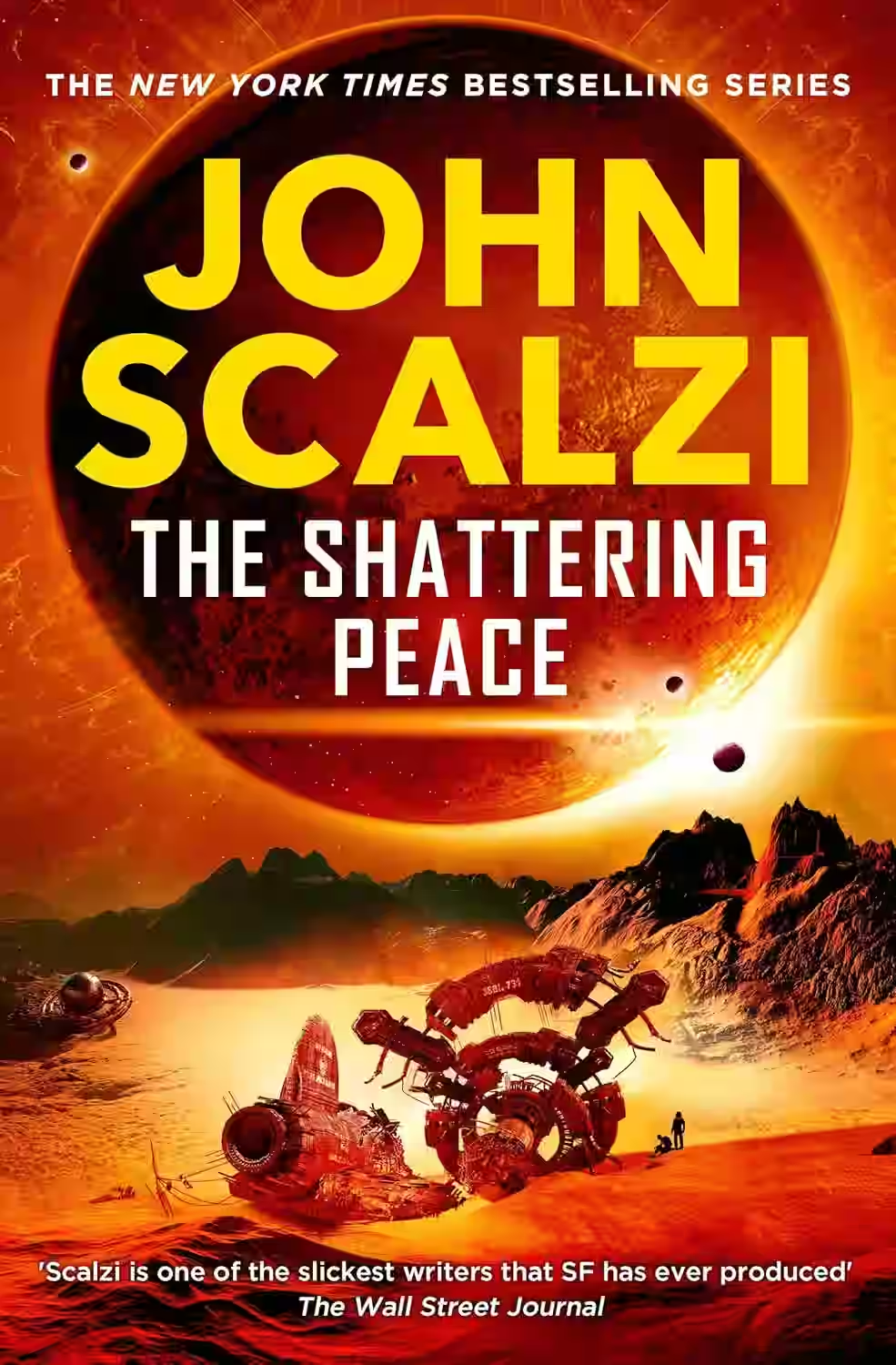
The Shattering Peace
by John Scalzi
Series: Old Man’s War (#7)
In 'The Shattering Peace,' John Scalzi crafts a riveting tale set in a universe on the brink of chaos. At the heart of the story is a fragile truce between interstellar civilizations, brokered by the enigmatic diplomat Nalini Kyre. As power struggles and treachery unfold, Nalini must navigate a labyrinth of political intrigue and moral dilemmas to prevent the collapse of peace. Scalzi's deft handling of complex themes such as diplomacy, loyalty, and the harrowing costs of war resonates throughout the narrative. With its compelling characters and tense atmosphere, 'The Shattering Peace' is a thought-provoking exploration of the fine line between order and anarchy.
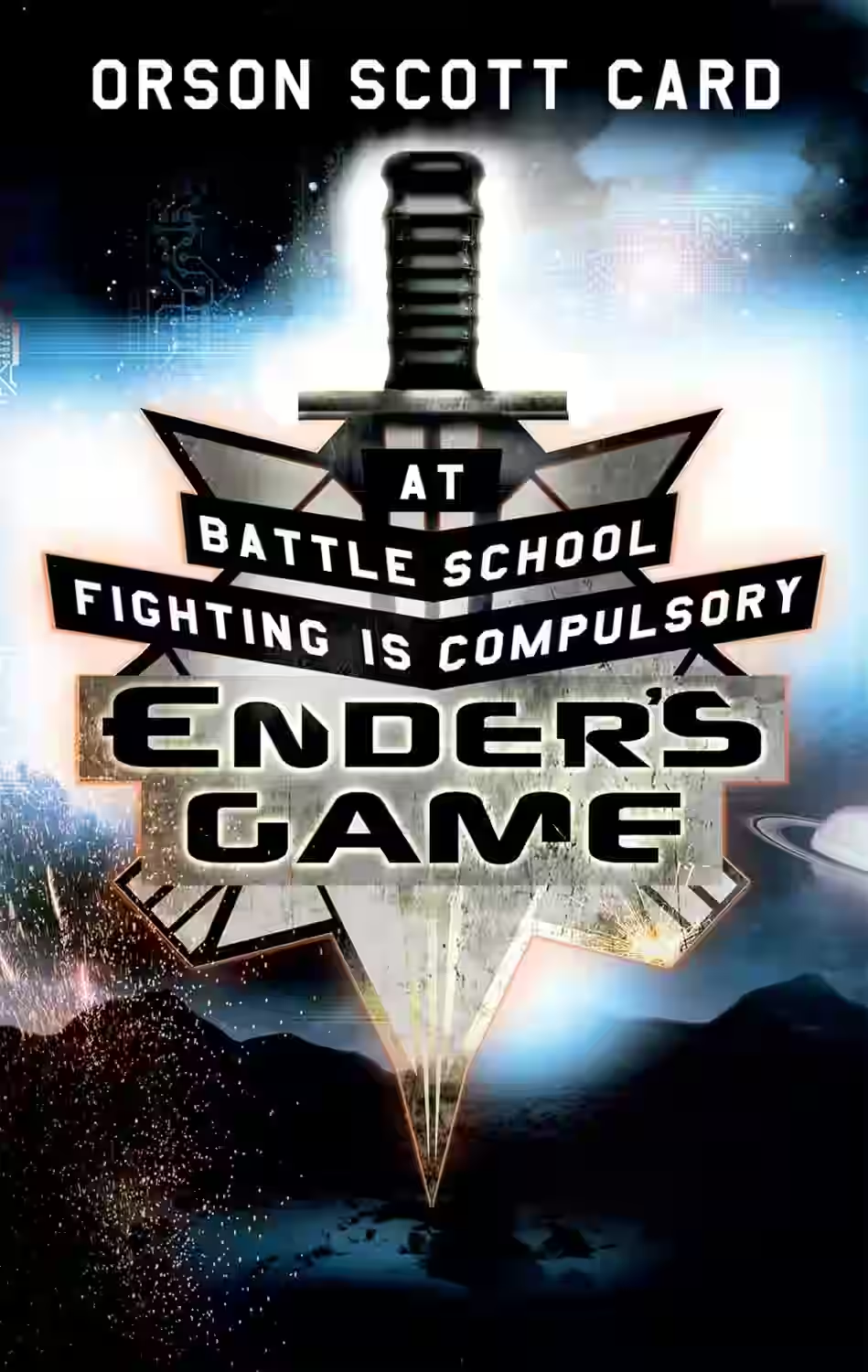
Ender’s Game
Series: Ender Quintet (#1)
Orson Scott Card's 'Ender's Game' is a captivating science fiction novel that follows the story of Andrew 'Ender' Wiggin, a brilliant young boy who is recruited to attend Battle School, a training ground for the galaxy's future military leaders in a war against an alien species known as the Formics. As Ender navigates through a series of complex challenges and simulations, he grapples with themes of power, morality, and the brutal realities of war. The book delves into Ender's struggle with his own humanity and the sacrifices he must make for the greater good. 'Ender's Game' is a thought-provoking and emotional journey that explores the depths of human nature and the consequences of one's actions.
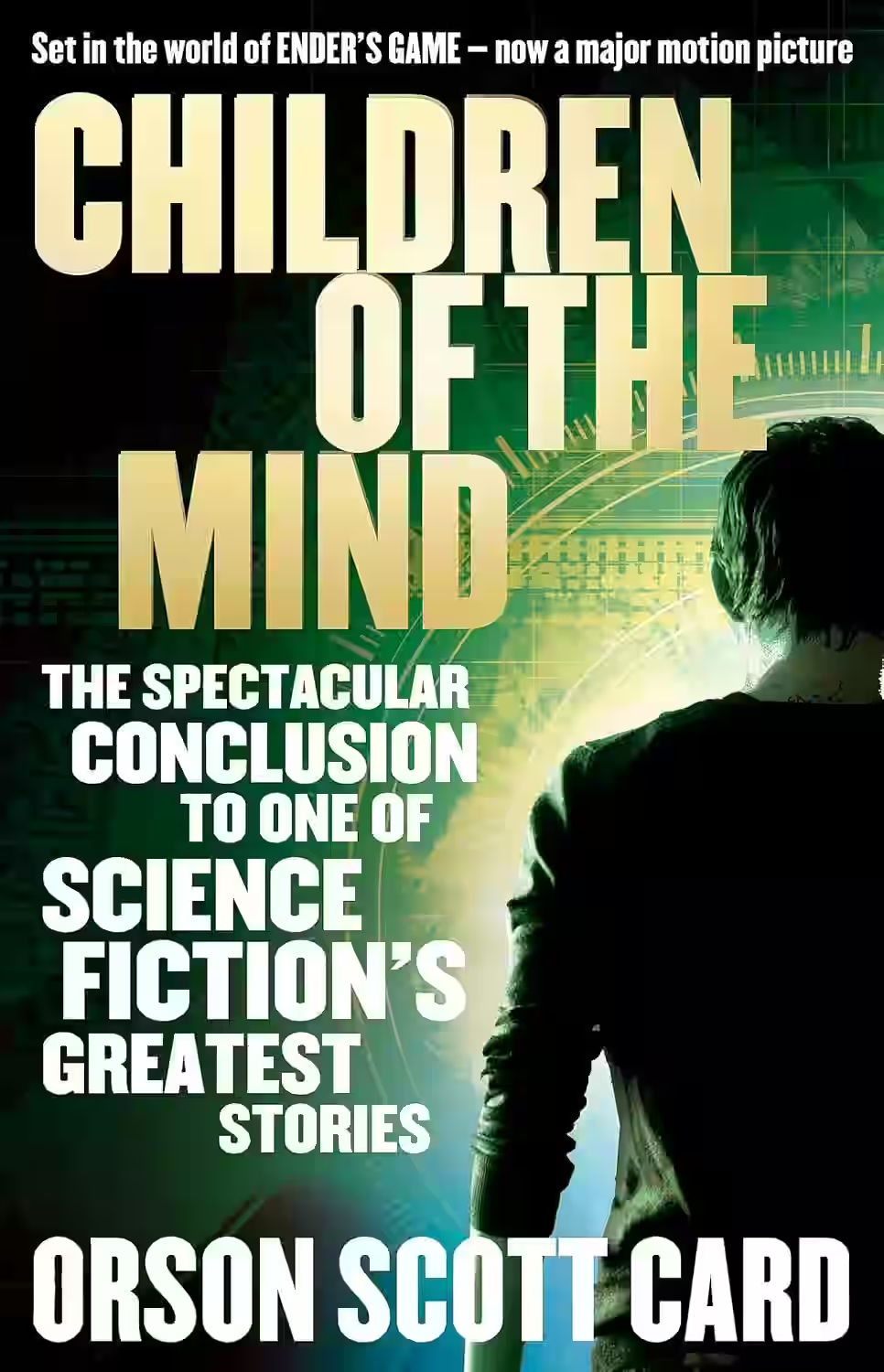
Children Of The Mind
Series: Ender Quintet (#4)
In Orson Scott Card's 'Children of the Mind,' the fourth installment of the beloved Ender's Game series, readers delve deeper into the complex mind of protagonist Andrew 'Ender' Wiggin as he navigates a strange new world, struggling with his own identity and moral dilemmas. The novel explores themes of consciousness, artificial intelligence, and the consequences of war, all while maintaining a gripping narrative filled with twists and turns. Card skillfully combines thought-provoking philosophy with intense action, creating a compelling read for fans of science fiction and psychological drama alike. 'Children of the Mind' is a fitting conclusion to Ender's saga, leaving readers both satisfied and contemplative.
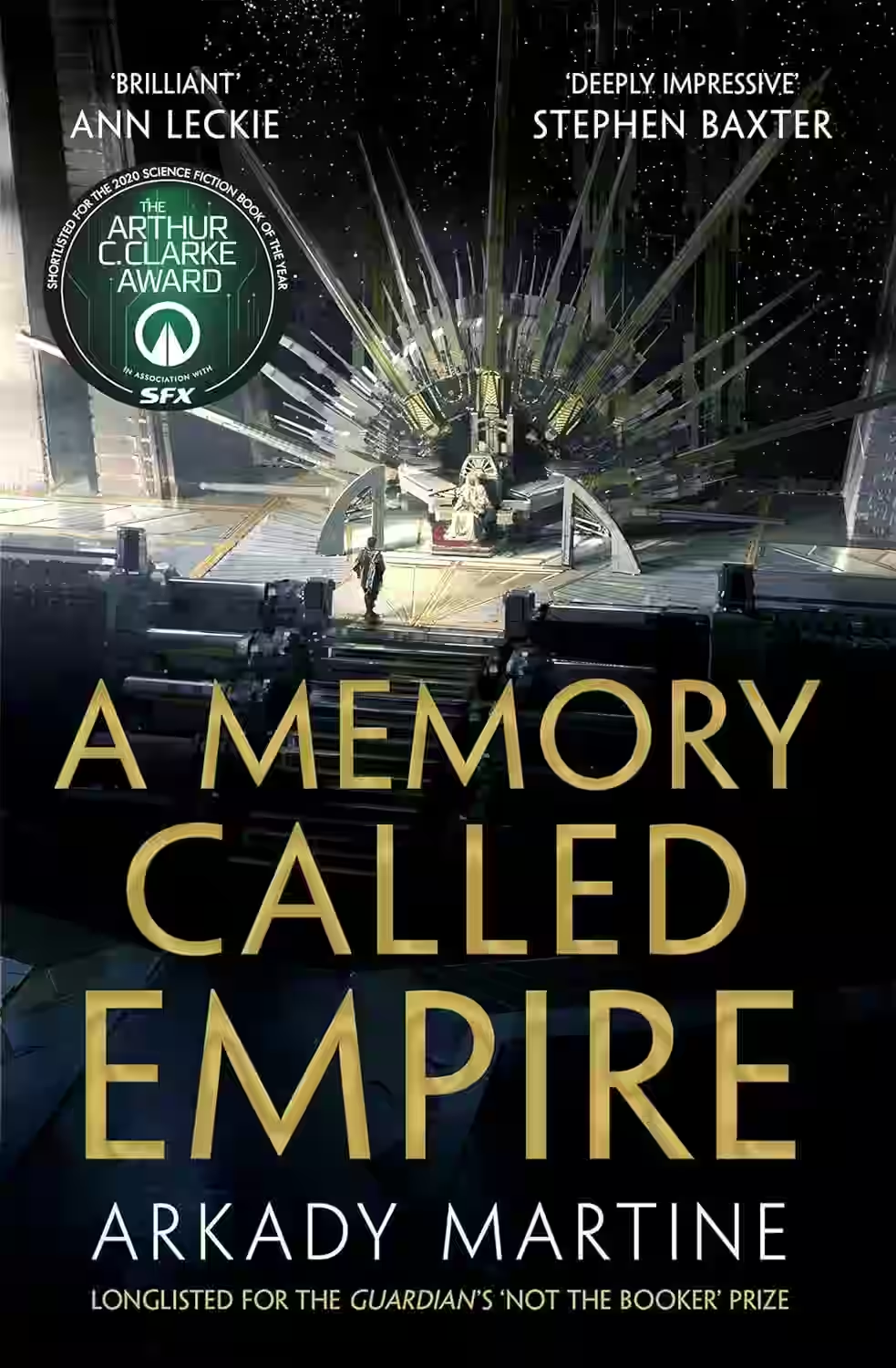
A Memory Called Empire
Series: Teixcalaan (#1)
Arkady Martine’s A Memory Called Empire is a cerebral space opera exploring identity, empire, and cultural assimilation. Ambassador Mahit Dzmare arrives at the sprawling Teixcalaanli Empire to investigate her predecessor’s mysterious death. As she navigates political intrigue and societal expectations, she relies on the outdated memories of her predecessor implanted in her mind. The novel examines the tension between personal autonomy and collective memory, and the beauty and danger of empire. With poetic world-building and philosophical depth, it’s a Hugo Award-winning debut that blends political thriller with rich sci-fi speculation.
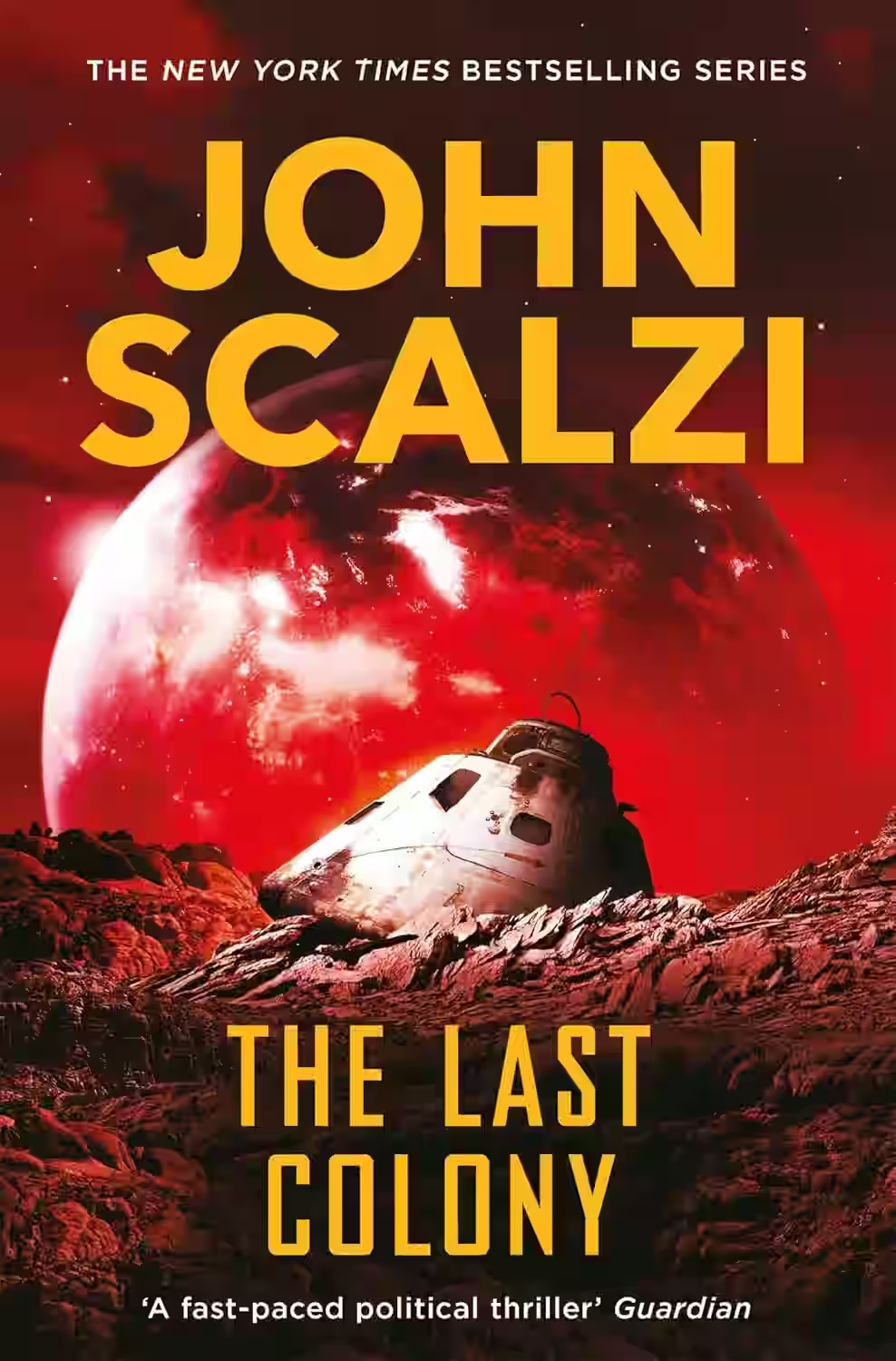
The Last Colony
by John Scalzi
Series: Old Man’s War (#3)
John Scalzi's 'The Last Colony' delivers an exhilarating continuation of the Old Man's War series, blending sharp wit with thought-provoking social commentary. The storyline follows John Perry and his formidable wife, Jane Sagan, as they are appointed leaders of a colonial settlement on the distant world of Roanoke. As political intrigue and interstellar diplomacy unfold, Scalzi deftly explores themes of identity, sovereignty, and the complexities of governance when cultural differences are stark. The novel is a fine balance of action, humor, and political intrigue, ensuring an engaging narrative experience. The vibrant character depictions and ethical dilemmas enrich the sci-fi plot, offering both entertainment and introspection for readers. Fans of Scalzi’s universe will appreciate this seamless blend of storytelling and thematic exploration, while newcomers can enjoy it as a standalone adventure with deeply rooted philosophical undertones.